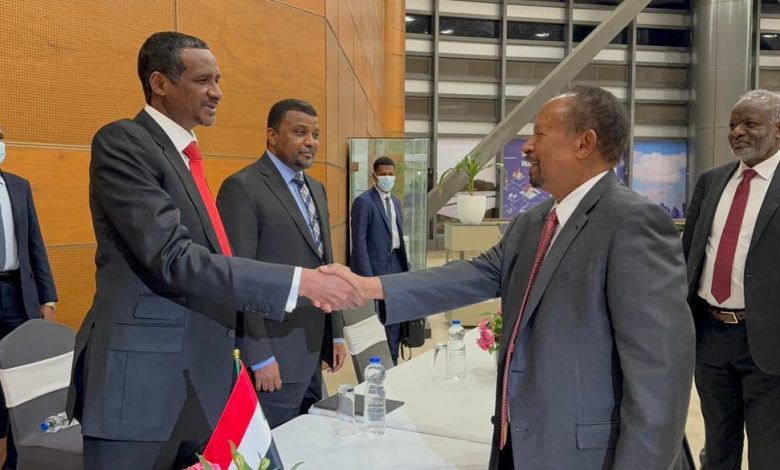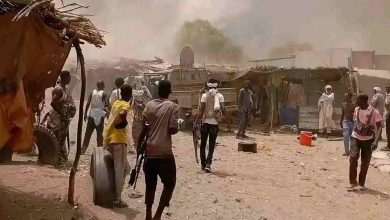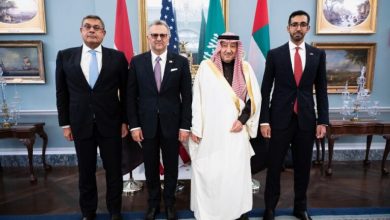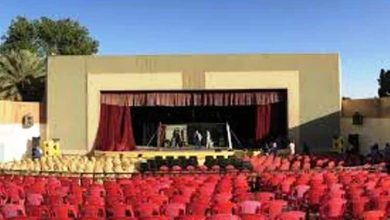Reports
(Taqaddum): An Attempt to Understand the Fraudulent Behavior of Militia Allies

Sudan Events – Agencies
Support signals from (Taqaddum) for the Rapid Support Forces militia in the war against the Sudanese Armed Forces have sparked widespread controversy in Sudan, raising significant questions. This debate stems from the positions and statements of some individuals or components within this coalition, as well as from the nature of the current political and military conflict in the country, accompanied by catastrophic events, crimes, and violations. Below, we review the key indications confirming (Taqaddam)’s support for the Rapid Support Forces militia.
Link to Islamists
One of the most notable indications is linking the army to Islamists, implying that the victory of the Rapid Support Forces equates to the defeat of Islamists. This serves as a smokescreen and an attempt to divert attention from the stance on the militia’s failed coup and subsequent retaliatory actions, which escalated to extensive violations affecting all citizens indiscriminately. Some leaders within (Taqaddam) issued timid criticisms, primarily targeting the Armed Forces, without directing the same level of critique towards the Rapid Support Forces militia. This approach has confirmed their bias toward the rebellion.
Call for Army Reform
Another signal is (Taqaddam)’s call for reforming the Sudanese army and limiting its role, which weakens the Armed Forces and strengthens the Rapid Support Forces’ position. They advocate for this while the war rages on and aggression continues—a message signaling a lack of desire to support the national army in this war under the pretext of needing reform. This appears more as an evasion than a genuine call for reform.
When violations reached an intolerable level, they fabricated the claim that the militia attacked civilians because the army armed them. This narrative conveniently avoided a clear, strong condemnation of the violations themselves.
An Agreement that Exposed Intentions
When (Taqaddam) signed an agreement with the militia in Addis Ababa, purportedly to coordinate and secure a future position, it was linked to protecting citizens’ security. However, as the violations and looting escalated and the militia committed atrocities, (Taqaddam) refrained from condemnation, clinging to the agreement in hopes that the militia would achieve a military or political victory that would serve their interests.
When hopes dimmed, delays mounted, exhaustion increased, and costs piled up, (Taqaddam) shifted to intensifying slogans like “No to War,” ostensibly to protect citizens’ interests. They pushed heavily for a peace agreement, claiming it would alleviate citizens’ suffering. In truth, this effort aimed to secure a partial victory for the militia through negotiations granting it partial authority and protection.
The Architect Behind It
The architect of this approach is undoubtedly Yasir Arman, known for betting on others’ weapons and joining them after their victories. He previously relied on the Sudan People’s Liberation Movement (SPLM), which ended in secession, and later on Al-Hilu and Malik Agar, both of whom chose to pursue personal interests in their regions. Now, he has aligned with the militia, and as hopes dwindle, he has returned to the youth of the revolution, reserving a new seat by stating: “When citizens return home, the revolution returns.”
Media Support for the Militia
Media support for the militia by (Taqaddam) was evident through coverage by channels and platforms affiliated with (Taqaddam), which focused more on highlighting alleged violations by the Armed Forces while downplaying the real crimes and violations committed by the Rapid Support Forces militia despite their brutality. This coincided with calls for a ceasefire—not from a principled humanitarian standpoint but to give the militia an opportunity to regroup.
Fabricating the Kenabi Narrative
After the Armed Forces entered Wad Madani, the capital of Al-Jazirah State, (Taqaddam) members claimed it was a withdrawal to open the door for negotiations. They then heavily criticized the limited, individual actions of those suspected of cooperating with the militia, while remaining silent about the militia’s horrific crimes against citizens in the state, including Kenabi residents, whom (Taqaddam) tried to exploit.
The Law of Relativity
The persistent silence of (Taqaddam) as an institution could confirm support for the Rapid Support Forces militia. However, this support is not necessarily a unified official stance of the coalition, given the diversity of its components and positions. Diverging stances have emerged, particularly within the Umma Party and reactions to the proposed government for militia-controlled areas. Nonetheless, the collective silence, reliance on time, and anticipation of outcomes implicate all of (Taqaddam) in shared historical, ethical, and legal responsibility for this silence, manipulation, and opportunism.
Source: Sudanese Echoes



